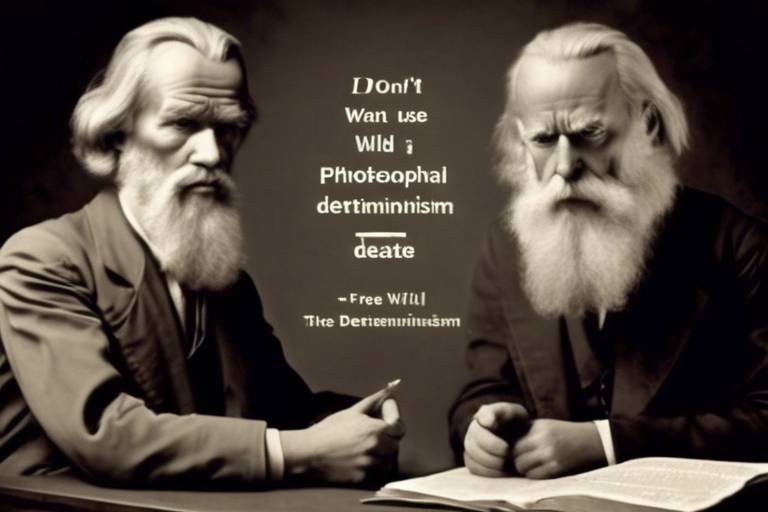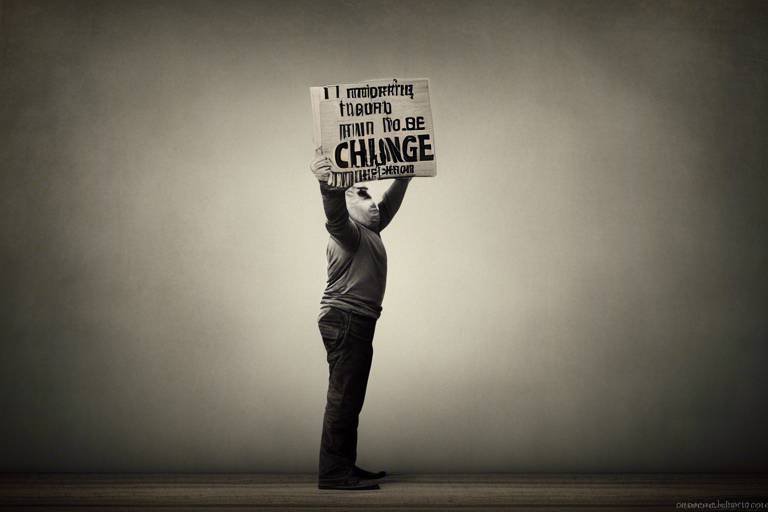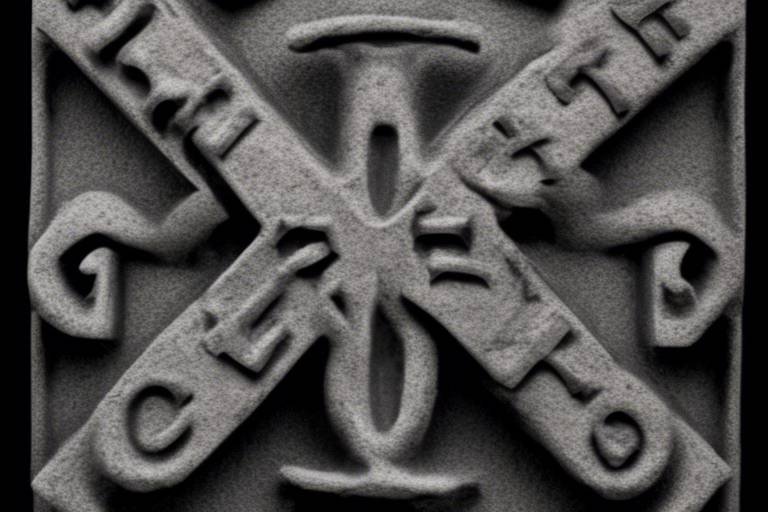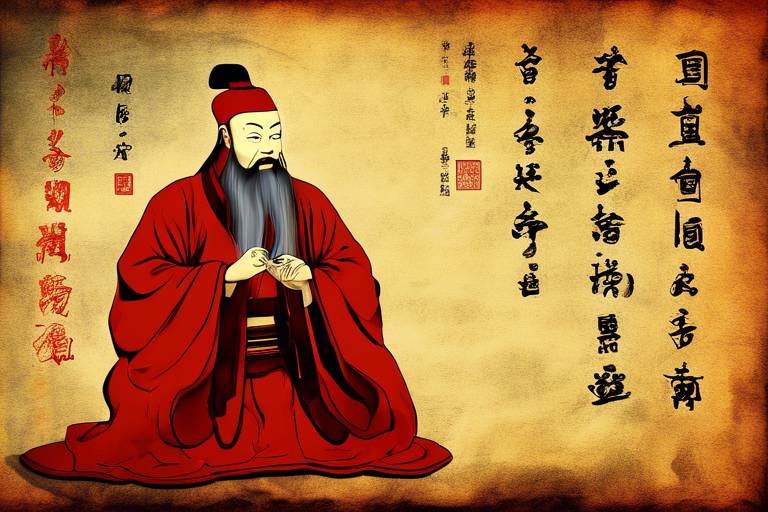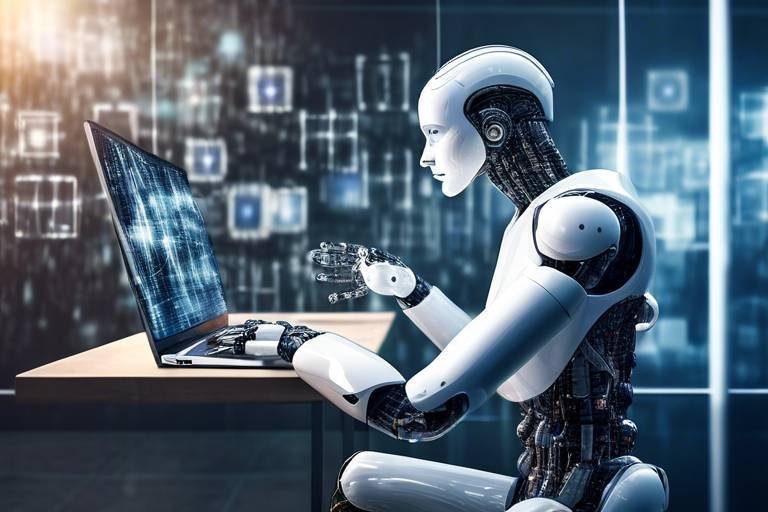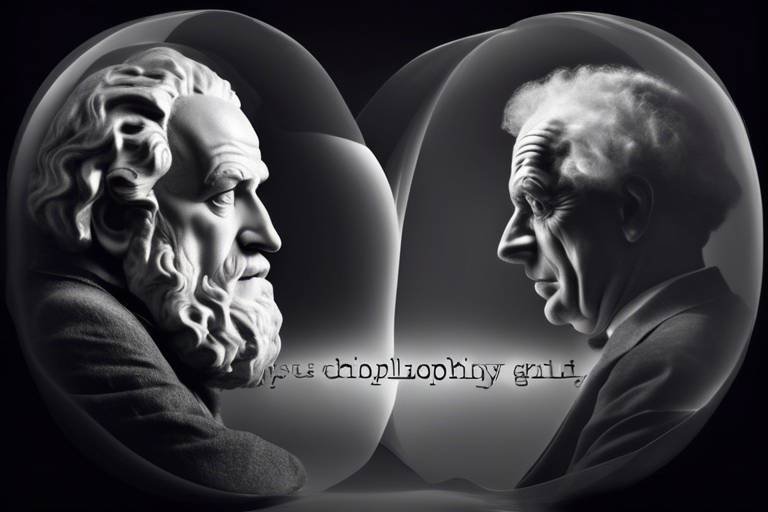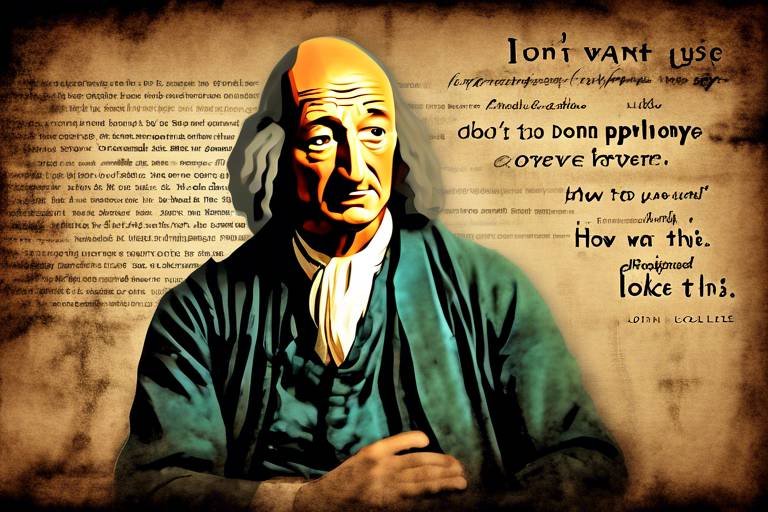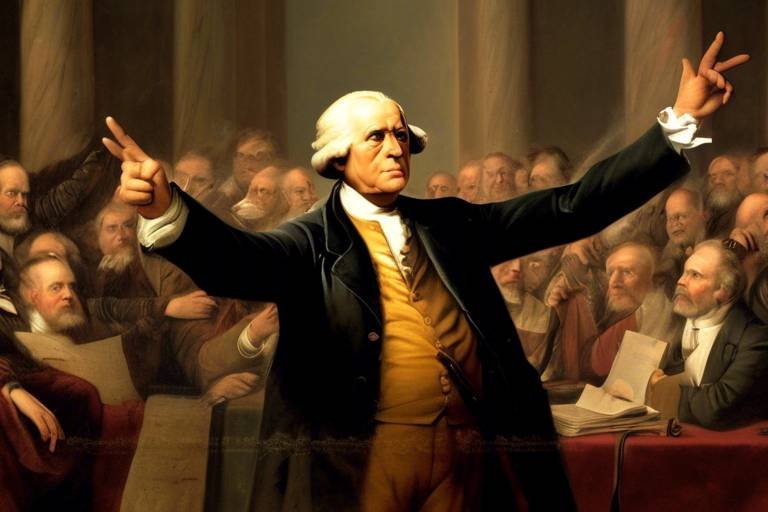The Philosophical Debate: Free Will vs. Determinism
This article explores the intricate philosophical debate surrounding free will and determinism, examining the implications of each perspective on human agency, responsibility, and morality. At its core, this debate raises fundamental questions about what it means to be human. Are we the architects of our own destinies, or are we merely puppets dancing to the strings of fate? This discussion is not just an academic exercise; it touches on our everyday lives and the choices we make. The tension between these two viewpoints has sparked countless discussions, leading to profound insights into human nature and existence.
Free will is often defined as the ability to make choices unconstrained by external forces. It embodies the essence of our humanity—the notion that we can choose our paths, shape our futures, and take responsibility for our actions. Imagine standing at a crossroads: one path leads to safety, while the other leads to adventure. The decision you make reflects your free will. However, the interpretation of free will varies widely among philosophers. Some argue that it is an absolute freedom, while others suggest that it exists within certain constraints, such as societal norms or psychological influences. Each interpretation carries significant implications for our understanding of human behavior and decision-making.
On the flip side, determinism posits that all events, including human actions, are determined by preceding events and natural laws. This perspective challenges the concept of free will by suggesting that our choices are merely the results of a complex chain of prior occurrences. Think of it like a domino effect: when one domino falls, it sets off a chain reaction that leads to a predetermined outcome. This raises a critical question: if our actions are predetermined, can we truly be held accountable for them? The philosophical underpinnings of determinism invite us to reconsider the nature of agency, suggesting that our sense of control may be an illusion.
Determinism encompasses several forms, including causal, logical, and theological determinism. Each type offers a different lens through which we can examine the debate on free will and human behavior. For instance, causal determinism suggests that every event is necessitated by preceding events in accordance with natural laws. In contrast, theological determinism argues that divine foreknowledge determines human actions, creating a fascinating tension between divine omniscience and human freedom. Understanding these distinctions is crucial for grasping the nuances of this philosophical debate.
Causal determinism suggests that every event is necessitated by preceding events in accordance with natural laws. This viewpoint implies that our choices are not as free as we might believe. If every decision we make is influenced by previous experiences, biological factors, and environmental conditions, how much control do we really have? This raises profound questions about moral responsibility. If someone commits a crime, can we hold them accountable if their actions were predetermined by their circumstances? This perspective forces us to reevaluate our notions of justice and accountability.
Theological determinism argues that divine foreknowledge determines human actions. This belief raises intriguing questions about the nature of God and the extent of human freedom. If God knows the future, does that mean our choices are already decided? This creates a paradox: how can we be truly free if our paths are known in advance? This tension between divine omniscience and human freedom has sparked debates among theologians and philosophers alike, prompting individuals to reflect on their beliefs about fate and free will.
Proponents of free will present various arguments emphasizing personal autonomy and moral accountability. They argue that the ability to make choices is essential for human dignity. If we are nothing more than products of our environment, then the very essence of what it means to be human is diminished. Key points supporting the existence of free will include:
- The subjective experience of making choices.
- The importance of moral responsibility in society.
- The role of personal agency in shaping one’s life.
These arguments highlight the significance of free will in our lives, reinforcing the idea that we are not just passive observers but active participants in our destinies.
Critics argue that free will is an illusion, pointing to psychological, neurological, and sociological evidence that suggests our decisions are influenced by factors beyond our control. For instance, recent studies in neuroscience indicate that decisions may be made subconsciously before individuals become aware of them. This raises critical implications for our understanding of free will. If our brains are making choices without our conscious awareness, are we truly in control?
Recent studies in neuroscience suggest that decisions may be made subconsciously before individuals become aware of them. This challenges the traditional notion of free will by indicating that our conscious mind may only be an observer of choices already made by our brain. Imagine a magician performing a trick: the audience believes they are witnessing a spontaneous act, but in reality, it’s all part of a carefully orchestrated plan. This revelation forces us to confront uncomfortable truths about our autonomy and decision-making processes.
Psychological theories often highlight the influence of unconscious motives and social conditioning on decision-making. Factors such as upbringing, culture, and peer pressure can significantly shape our choices, often without us even realizing it. This suggests that our perceived freedom may be more constrained than we think. The interplay between our environment and our choices invites us to question the extent of our autonomy and the forces that shape our lives.
- What is free will? - Free will is the ability to make choices without external constraints.
- What is determinism? - Determinism is the philosophical view that all events are determined by preceding events and natural laws.
- Can free will and determinism coexist? - This is a contentious issue; some argue for compatibilism, which suggests that free will can exist within a deterministic framework.
- How does neuroscience impact the debate? - Neuroscience suggests that many decisions are made subconsciously, challenging our understanding of conscious choice.

The Nature of Free Will
Free will is a concept that has intrigued philosophers, scientists, and everyday individuals alike for centuries. At its core, free will is often defined as the ability to make choices without being constrained by external forces. Imagine standing in front of an ice cream shop with dozens of flavors. You can pick chocolate, vanilla, or even something exotic like lavender honey. This freedom to choose is what many believe embodies the essence of free will. However, as we dive deeper into this philosophical ocean, the waters become murkier. Is our choice truly ours, or are we simply acting out a script written by our biology, upbringing, and circumstances?
To understand the implications of free will, we need to explore its various interpretations. Some argue that free will is not just about making choices; it's about having the capacity for self-determination. This means that our decisions reflect who we are as individuals, shaped by our values, beliefs, and experiences. Others propose a more limited view, suggesting that while we may feel free, our choices are heavily influenced by psychological and environmental factors. This leads us to a crucial question: if our choices are influenced, can we truly claim to have free will?
One of the most compelling aspects of free will is its connection to moral responsibility. If we are indeed free to make our own choices, then we must also be accountable for those choices. This idea is fundamental to our legal and ethical systems. For instance, when someone commits a crime, society holds them responsible because it assumes they had the freedom to choose otherwise. But what happens when we consider the factors that may have influenced their decision? This brings us to the heart of the debate: if our choices are determined by prior events and conditions, can we still hold individuals morally accountable?
Moreover, the implications of free will extend beyond individual choices. They touch on societal constructs, such as justice and punishment. If we accept that free will exists, we are likely to advocate for a justice system that emphasizes rehabilitation over punishment. Conversely, if determinism holds true, we might lean towards a system that recognizes the underlying causes of behavior, aiming to understand rather than simply penalize. This shift in perspective could lead to a more compassionate society, one that seeks to address the root causes of behavior rather than merely reacting to its manifestations.
In summary, the nature of free will is a complex and multifaceted topic. It challenges our understanding of human agency and responsibility. As we continue to explore this philosophical debate, we must grapple with the implications of our beliefs about free will. Are we truly the architects of our destinies, or are we merely players in a grand play, directed by forces beyond our control? The answers may not be clear-cut, but the journey of exploration is what makes this debate so fascinating.

Understanding Determinism
Determinism is a philosophical doctrine that suggests every event or action is the result of preceding events in accordance with the natural laws of the universe. Imagine a vast, intricate machine where each cog and wheel interacts seamlessly with the others; this is akin to how determinism views the world. In this perspective, human actions, thoughts, and decisions are not random or free but are instead the inevitable outcomes of prior causes. This raises a plethora of questions about human agency and the very nature of our choices.
At its core, determinism challenges the notion of free will, positing that our decisions are preordained by a chain of events that stretches back to the beginning of time. If everything is determined, can we truly claim to have the autonomy to choose? This philosophical conundrum has sparked debates for centuries, with thinkers from various disciplines weighing in on the implications of determinism for morality, accountability, and personal agency.
Understanding determinism also requires a look at its various forms. Each type brings its own nuances to the discussion:
- Causal Determinism: This form asserts that every event is necessitated by prior events in accordance with the laws of nature. If you drop a ball, it falls because of gravity, and that fall is determined by the conditions leading up to it.
- Logical Determinism: This perspective suggests that propositions about the future are either true or false, implying that the future is already set, regardless of human action.
- Theological Determinism: This viewpoint posits that a divine being knows all future events, which raises questions about the interplay between divine foreknowledge and human freedom.
Each of these forms of determinism influences how we interpret human behavior. For instance, causal determinism leads us to believe that our choices are influenced by a myriad of factors—genetics, environment, past experiences—much like how a river flows in a predetermined direction based on the landscape it traverses. In contrast, theological determinism presents a more complex relationship between faith and free will, inviting believers to ponder how divine knowledge aligns with human choice.
As we delve deeper into this philosophical debate, it's crucial to consider the implications of determinism on our understanding of morality. If our actions are predetermined, can we hold individuals accountable for their choices? This question challenges the very foundation of legal and ethical systems, which often rely on the premise that individuals have the freedom to choose between right and wrong. The exploration of determinism not only reshapes our views on responsibility but also invites us to reflect on the nature of human existence itself.
In summary, understanding determinism requires us to navigate a complex landscape of philosophical thought. It compels us to question the essence of our choices and the extent of our agency. As we continue to explore these themes, we must remain open to the myriad interpretations and implications that determinism presents, fostering a dialogue that enriches our understanding of what it means to be human.
1. What is determinism?
Determinism is the philosophical belief that all events, including human actions, are determined by preceding events and natural laws, leaving no room for free will.
2. How does determinism affect moral responsibility?
If our actions are predetermined, it raises questions about accountability and whether individuals can be held responsible for their choices.
3. Are there different types of determinism?
Yes, determinism can be categorized into several forms, including causal, logical, and theological determinism, each with unique implications for human behavior.
4. Can free will exist within a deterministic framework?
This is a contentious debate; some argue that free will can coexist with determinism, while others maintain that true free will is incompatible with a deterministic universe.

Types of Determinism
When we dive into the philosophical waters of determinism, we discover that it isn't just a single concept but rather a spectrum of ideas that influence our understanding of human behavior and choice. Essentially, determinism can be categorized into several distinct types, each with its own implications and nuances. To grasp the full picture, let's take a closer look at these variations.
First up, we have causal determinism. This idea posits that every event, including human actions, is the result of preceding events governed by natural laws. Imagine a giant domino effect: one action leads to another, creating a chain reaction that ultimately shapes our choices. In this view, every decision we make is merely a link in a vast chain of causation, raising questions about the authenticity of our choices. If our actions are predetermined by a series of prior events, can we truly claim to have free will?
Next, there’s theological determinism, which introduces a divine element into the mix. This perspective suggests that if a deity possesses omniscience, then all human actions are already known to this divine being. It's like being part of a meticulously planned script where every line has already been written. Here, the tension arises between divine foreknowledge and human freedom. How can we be truly free if our actions are already known? This conundrum has sparked countless debates among theologians and philosophers alike.
Another form worth mentioning is logical determinism. This theory argues that propositions about the future are either true or false, regardless of whether we are aware of them. In simpler terms, it suggests that if something is destined to happen, it is already a fact, even if we haven't experienced it yet. It challenges our perception of uncertainty and raises further questions about how we perceive time and our choices within it.
To summarize, the types of determinism can be viewed as follows:
| Type of Determinism | Description |
|---|---|
| Causal Determinism | Every event is necessitated by preceding events according to natural laws. |
| Theological Determinism | Divine foreknowledge determines human actions, raising questions about free will. |
| Logical Determinism | Propositions about the future are true or false, regardless of our awareness. |
Understanding these different types of determinism not only enriches our philosophical discussions but also compels us to reflect on the nature of our choices. Are we mere puppets dancing on the strings of causation, or do we possess the power to cut those strings and forge our own paths? The answer may not be as clear-cut as we would like it to be.

Causal Determinism
Causal determinism is a fascinating concept that suggests every event, including human actions, is necessitated by preceding events in accordance with natural laws. Imagine a giant, intricate machine where each gear and lever is connected; when one part moves, it sets off a chain reaction that influences everything else. This analogy captures the essence of causal determinism, where our choices and actions are not isolated but are instead the result of a long chain of prior occurrences. This perspective raises profound questions about the nature of human choice and moral responsibility. If our decisions are merely the outcome of a series of prior events, can we truly claim to be the authors of our own lives?
To delve deeper, let’s consider some implications of causal determinism on our understanding of free will. If every choice we make is predetermined by a combination of our past experiences, biological makeup, and environmental factors, then the concept of free will may seem to dissolve like sugar in water. This leads us to ponder: Are we simply puppets dancing on strings pulled by the forces of nature? Or is there a sliver of autonomy that allows us to break free from this deterministic framework?
Furthermore, causal determinism challenges traditional beliefs about morality and accountability. If individuals are not truly free to choose their actions, how can we hold them responsible for their behavior? This dilemma has sparked heated debates among philosophers, ethicists, and theologians alike. For example, let's consider a situation where a person commits a crime. Under the lens of causal determinism, one might argue that their actions were the result of a series of unfortunate events and influences that led them to that moment. This raises critical questions about punishment, rehabilitation, and the nature of justice itself.
To illustrate the impact of causal determinism, we can look at three key areas where it significantly influences our understanding of human behavior:
| Area | Impact of Causal Determinism |
|---|---|
| Morality | Challenges the basis of moral responsibility and accountability. |
| Psychology | Suggests that behaviors are products of past experiences and conditioning. |
| Legal System | Questions the fairness of punishment and the concept of justice. |
In conclusion, causal determinism invites us to rethink our understanding of free will and moral agency. It compels us to consider whether we are genuinely in control of our actions or merely responding to a complex web of influences. As we navigate these philosophical waters, it’s essential to remain open-minded and explore the implications of our findings, recognizing that the debate between free will and determinism is far from over.
- What is causal determinism? - Causal determinism is the idea that every event is determined by preceding events and natural laws.
- How does causal determinism affect free will? - It suggests that our choices may not be entirely free but rather influenced by a series of prior events.
- Can we hold people accountable under causal determinism? - This is a contentious issue, as it raises questions about moral responsibility if actions are predetermined.
- What are the implications for the legal system? - The legal system may need to reconsider how it punishes individuals if their actions are seen as determined rather than freely chosen.

Theological Determinism
Theological determinism presents a fascinating intersection between faith and philosophy, arguing that divine foreknowledge dictates human actions. Imagine a grand cosmic script where every moment of our lives is penned by an omniscient author. This perspective raises profound questions about the nature of free will and the essence of moral responsibility. If a deity knows our choices before we make them, can we truly consider ourselves free agents? Or are we merely players in a predetermined play, following a script we never chose?
At the heart of theological determinism lies the belief that God's omniscience encompasses all events—past, present, and future. This means that every decision we make, every path we choose, was already known to the divine before we even took our first breath. It's a bit like watching a movie for the second time; you know what’s going to happen, but the characters are still acting as if they have a choice. This analogy illustrates the tension between the concepts of divine foreknowledge and human autonomy.
Critics of theological determinism often argue that if our choices are foreseen by a deity, then the very notion of free will becomes questionable. How can we be held accountable for actions that were already known and possibly predetermined? To explore this further, let’s consider some key implications:
- Divine Justice: If God knows our actions in advance, how does this affect the concept of divine justice? Are we judged for actions we were destined to take?
- Moral Responsibility: Can we truly be morally responsible for our actions if they are part of a divine plan?
- Human Experience: How does this belief shape our understanding of personal struggles and triumphs? Do we find comfort in believing we have agency, or does that belief clash with our faith?
In many religious contexts, these questions lead to a rich tapestry of beliefs and interpretations. Some argue that God's foreknowledge does not negate human freedom; rather, it coexists with it in a mysterious way. This view posits that while God may know the outcome of our choices, we still possess the ability to make those choices freely. It's akin to a parent knowing their child will eventually learn to ride a bike; the parent’s knowledge doesn’t interfere with the child’s learning process.
Ultimately, the dialogue surrounding theological determinism invites us to reflect on our beliefs about free will, morality, and the nature of the divine. It challenges us to consider how much control we truly have over our lives and the extent to which we are influenced by a higher power. As we navigate this philosophical landscape, it’s essential to engage with these ideas thoughtfully, recognizing that they can shape our understanding of ourselves and our place in the universe.
1. What is theological determinism?
Theological determinism is the belief that God’s foreknowledge of all events, including human actions, means that these actions are predetermined. This raises questions about free will and moral responsibility.
2. How does theological determinism affect the concept of free will?
Theological determinism suggests that if God knows our choices in advance, our ability to choose freely may be compromised, leading to debates about accountability and moral judgment.
3. Can theological determinism coexist with free will?
Some theologians argue that divine foreknowledge and human free will can coexist, suggesting that while God knows the outcome of our choices, we still have the freedom to make those choices.
4. What are the implications of theological determinism on morality?
The implications include questions about divine justice and whether individuals can be held accountable for actions that were foreseen by God, potentially complicating our understanding of moral responsibility.
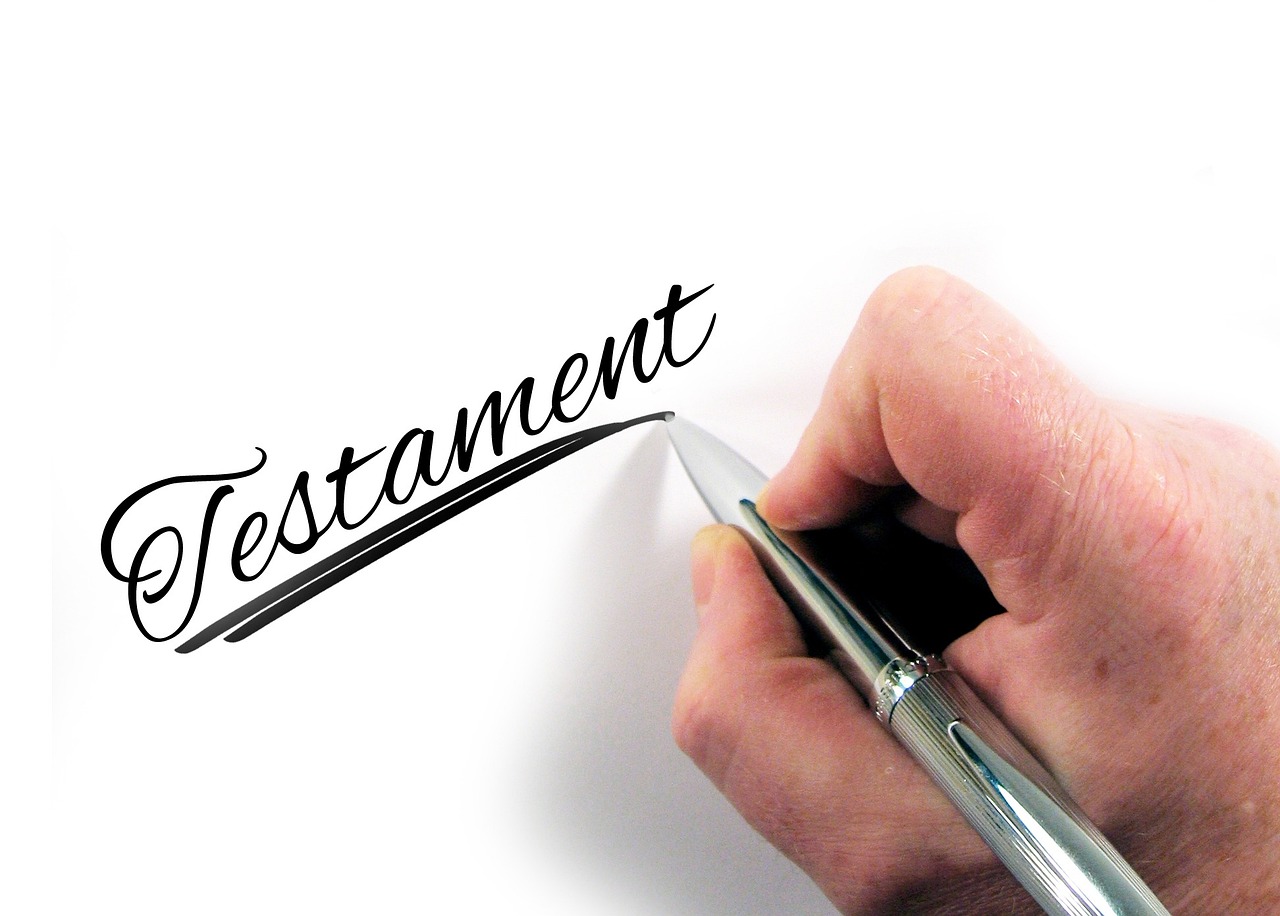
Arguments for Free Will
The debate surrounding free will is rich and multifaceted, with proponents passionately defending the idea that we are the architects of our own destinies. One of the most compelling arguments for free will is the notion of personal autonomy. This concept suggests that individuals possess the inherent ability to make choices that are not merely the result of external influences or predetermined paths. Imagine standing at a crossroads: one path leads to security and comfort, while the other beckons with adventure and uncertainty. The very act of choosing between these paths exemplifies the essence of free will—our capacity to navigate life's complexities according to our values and desires.
Another strong argument in favor of free will is the idea of moral accountability. If we accept that we have the power to make choices, it follows that we must also accept responsibility for the consequences of those choices. This accountability is fundamental to our social structures and legal systems. For instance, when someone commits a crime, society expects them to face the repercussions of their actions. This expectation is rooted in the belief that individuals have the ability to choose right from wrong, thereby reinforcing the importance of free will in maintaining moral order.
Moreover, the experience of self-reflection and introspection further supports the argument for free will. When we ponder our decisions, weighing the pros and cons, we engage in a mental process that suggests a level of control over our choices. This internal dialogue is indicative of our ability to shape our lives. For example, consider a student deciding whether to pursue a career in medicine or the arts. The deliberation process, filled with hopes, fears, and aspirations, showcases the essence of free will at work. In this context, free will becomes not just a philosophical concept but a lived reality.
Additionally, the creative potential inherent in human beings often points to the existence of free will. The ability to innovate, create art, or develop new ideas stems from a sense of agency that allows individuals to transcend their circumstances. Think about artists and inventors who challenge the status quo; their work is a testament to the power of choice and the drive to forge new paths. This creative spirit is often stifled in deterministic frameworks, where outcomes are preordained and individual input is minimized.
Furthermore, the existential perspective emphasizes that individuals must confront their freedom. Existentialists like Jean-Paul Sartre argued that existence precedes essence, meaning that we are not defined by predetermined roles or expectations but by the choices we make. This view empowers individuals to embrace their freedom and the weight of their decisions, reinforcing the argument that free will is not just a philosophical abstraction but a fundamental aspect of the human experience.
In summary, the arguments for free will are anchored in the concepts of personal autonomy, moral accountability, self-reflection, creative potential, and existential freedom. These elements converge to paint a picture of humanity as agents capable of shaping their futures. While the debate continues, the belief in free will resonates deeply within our collective consciousness, affirming our desire to be more than mere products of circumstance.
- What is free will? Free will is the ability to make choices that are not determined by prior causes or divine intervention.
- Why is moral accountability important? Moral accountability is crucial because it underpins our legal and ethical systems, holding individuals responsible for their actions.
- How does self-reflection relate to free will? Self-reflection allows individuals to evaluate their choices, reinforcing the idea that they have the power to influence their lives.
- What role does creativity play in the argument for free will? Creativity demonstrates the ability to choose and innovate, suggesting that individuals can transcend deterministic limitations.
- What do existentialists say about free will? Existentialists argue that individuals define themselves through their choices, emphasizing the importance of personal freedom.

Counterarguments to Free Will
While the idea of free will is appealing, it faces a barrage of counterarguments that challenge its very existence. Critics argue that, rather than being the captains of our own ships, we are merely passengers navigating the waters of life, influenced by a myriad of factors beyond our control. This notion raises profound questions: If our choices are predetermined by biology, environment, or societal influences, can we truly claim to be free? The implications of these arguments extend into the realms of morality and responsibility, compelling us to rethink our understanding of human agency.
One of the most compelling lines of reasoning against free will comes from neurological evidence. Recent studies in neuroscience have shown that our brains often make decisions before we even become consciously aware of them. For instance, researchers like Benjamin Libet conducted experiments where participants were asked to make a spontaneous decision while their brain activity was monitored. The results indicated that brain activity predicting the decision occurred several hundred milliseconds before the participant consciously decided to act. This raises a tantalizing question: if our brains are making decisions for us, what role do we really play in our own choices?
Moreover, psychological perspectives add another layer of complexity to the debate. Various psychological theories suggest that our decisions are heavily influenced by unconscious motives and social conditioning. For example, consider how advertising shapes our preferences or how peer pressure can sway our choices. These influences can be so subtle that we often don’t recognize them, leading to the argument that our sense of autonomy is an illusion. If our choices are significantly shaped by factors we are unaware of, can we genuinely consider ourselves free agents?
Additionally, the concept of determinism in the context of societal and environmental factors cannot be overlooked. Our upbringing, culture, and even socioeconomic status play critical roles in shaping who we are and how we make decisions. For example, a child raised in a nurturing environment is likely to develop different decision-making skills compared to one raised in a chaotic or abusive setting. This disparity highlights how external factors can dictate the range of choices available to individuals, further complicating the notion of free will.
To illustrate the interplay between these influences, consider the following table summarizing different factors that may challenge the existence of free will:
| Factor | Description |
|---|---|
| Neurological Evidence | Decisions made subconsciously before conscious awareness. |
| Psychological Conditioning | Influence of unconscious motives and societal influences on choices. |
| Environmental Factors | Impact of upbringing and culture on decision-making capabilities. |
In conclusion, while the allure of free will is strong, the arguments against it present a formidable challenge. The interplay of neurological, psychological, and environmental influences suggests that our choices may not be as free as we like to believe. This ongoing debate raises critical questions about human responsibility, morality, and the very nature of what it means to be human. As we continue to explore these philosophical waters, it becomes increasingly clear that understanding our decision-making processes is essential for grasping the complexities of human agency.
- What is free will? Free will is the ability to make choices unconstrained by external forces.
- What is determinism? Determinism is the philosophical view that all events, including human actions, are determined by preceding events and natural laws.
- Can free will and determinism coexist? Some philosophers argue for compatibilism, suggesting that free will and determinism can coexist in a way that allows for moral responsibility.
- How does neuroscience challenge free will? Neuroscience suggests that decisions may be made in the brain before we are consciously aware of them, questioning the role of conscious choice.
- What role does psychology play in our decision-making? Psychological theories highlight the impact of unconscious motives and social conditioning, which can influence our choices without our awareness.

Neurological Evidence
Recent advances in neuroscience have sparked a fascinating conversation about the nature of decision-making and its implications for the concept of free will. Studies using brain imaging technologies, such as functional MRI (fMRI), reveal that our brains often initiate decisions before we are consciously aware of them. This phenomenon raises a critical question: if our brains are making choices without our conscious input, can we truly claim to have free will? Imagine your brain as a complex orchestra, where the conductor (your conscious mind) believes it’s leading the performance, while the musicians (subconscious processes) have already started playing the notes before the conductor raises the baton. This analogy captures the tension between our perception of control and the underlying neurological processes.
One notable study conducted by neuroscientists Benjamin Libet and his team in the 1980s demonstrated that brain activity associated with decision-making occurred several hundred milliseconds before participants reported being consciously aware of their decision to act. This finding suggests that our sense of agency might be more of an illusion than we’d like to believe. The implications of such discoveries challenge the traditional view of free will, leading to a growing body of thought that posits our actions are pre-determined by neural processes. To further illustrate this point, consider the following table summarizing key findings from various neurological studies:
| Study | Findings | Implications |
|---|---|---|
| Libet's Experiment (1983) | Brain activity precedes conscious decision by 200-300 ms | Challenges the notion of conscious choice |
| Haynes et al. (2007) | Brain patterns can predict choices before awareness | Supports the idea of subconscious decision-making |
| Soon et al. (2008) | Decisions can be predicted up to 10 seconds in advance | Questions the timing of conscious decision-making |
These findings compel us to reconsider our understanding of autonomy and responsibility. If our decisions are influenced or even predetermined by neural activity beyond our conscious awareness, what does that mean for accountability? It’s like being a puppet on strings, where the puppeteer (our brain) dictates the actions, leaving us to merely play the part of the actor. This perspective can be unsettling, as it challenges our fundamental beliefs about self-control and moral responsibility.
Moreover, the implications extend beyond mere philosophical musings; they touch on the very fabric of how we perceive ourselves in society. If we accept that much of our behavior is driven by subconscious processes, we may need to rethink how we approach issues like criminal justice, mental health, and personal relationships. For instance, should a person be held fully accountable for actions that were arguably influenced by subconscious impulses? These questions are not just theoretical; they have real-world consequences that impact how we understand human behavior and social norms.
In conclusion, the neurological evidence surrounding decision-making presents a compelling challenge to the traditional views of free will. As we delve deeper into the workings of the brain, we may find that our understanding of choice, agency, and responsibility must evolve. The conversation is ongoing, and each new discovery adds another layer to this intricate debate.

Psychological Perspectives
When we dive into the realm of , it becomes clear that our decisions are not as straightforward as we might like to believe. Traditional views of free will often paint a picture of individuals as autonomous agents, making choices in a vacuum. However, a closer look reveals that our thought processes and behaviors are significantly influenced by a myriad of factors that operate beneath our conscious awareness. It's like trying to navigate a boat on a vast ocean, where currents and winds—representing our unconscious motives and social conditioning—can steer us in directions we never intended to go.
One of the most compelling arguments against the notion of absolute free will comes from the field of psychology, particularly through the lens of unconscious influences. Research suggests that our minds are often at work behind the scenes, shaping our preferences, desires, and ultimately, our choices. For instance, studies in social psychology have shown that subtle cues in our environment, such as the presence of certain colors or even the arrangement of furniture, can impact our decisions in ways we are completely unaware of. It's as if our minds are running a complex algorithm that weighs countless variables before we even realize we're making a choice.
Moreover, the concept of social conditioning plays a pivotal role in how we make decisions. From a young age, we are bombarded with societal norms, cultural values, and familial expectations that shape our beliefs and behaviors. This conditioning can create a framework within which we operate, often limiting our perceived options. For example, consider a person raised in a community where certain career paths are deemed acceptable while others are frowned upon. Their ability to choose freely may be compromised by the weight of these social expectations, leading to a life that feels predetermined rather than self-directed.
To further illustrate this point, let's consider some key psychological theories that emphasize the impact of external factors on decision-making:
- Behaviorism: This theory posits that all behaviors are learned through interaction with the environment. Thus, our choices can often be traced back to external stimuli rather than internal volition.
- Cognitive Dissonance: When faced with conflicting beliefs or behaviors, individuals may alter their perceptions to align with societal expectations, further undermining the notion of free will.
- Social Identity Theory: This theory suggests that our self-concept and decisions are heavily influenced by group membership, leading us to conform to group norms and expectations.
These psychological insights challenge the romanticized notion of free will, suggesting that our choices may be more like a dance than a solo performance. We might think we are leading, but the rhythm of our lives is often dictated by the unseen forces of our upbringing, societal pressures, and unconscious motivations. It's a complex interplay that raises profound questions: Are we truly the authors of our own lives, or are we merely characters in a story written by external influences?
As we navigate this intricate landscape of psychological perspectives, it's essential to acknowledge that while these factors may limit our autonomy, they do not entirely negate it. Understanding the influences at play can empower us to make more informed choices and potentially break free from the chains of our conditioning. After all, recognizing the forces that shape us is the first step toward reclaiming our agency in a world that often feels predetermined.
- What is the main argument against free will? The main argument against free will is that many of our decisions are influenced by unconscious factors, social conditioning, and environmental stimuli, limiting our autonomy.
- How does social conditioning affect our choices? Social conditioning shapes our beliefs and behaviors from a young age, often leading us to conform to societal norms and expectations, which can restrict our perceived options.
- Can we reclaim our free will? Yes, by becoming aware of the influences that shape our decisions, we can make more informed choices and potentially break free from limiting patterns.
Frequently Asked Questions
- What is free will?
Free will refers to the ability of individuals to make choices that are not constrained by external forces. It implies that we have control over our actions and decisions, allowing us to act according to our own desires and reasoning.
- How does determinism differ from free will?
Determinism suggests that every event, including human actions, is the result of preceding events and natural laws. In contrast, free will argues that individuals can make choices independent of such constraints, raising questions about moral responsibility and agency.
- What are the types of determinism?
There are several types of determinism including causal, logical, and theological determinism. Each type offers a unique perspective on how events unfold and the extent to which human actions are predetermined by prior conditions or divine influence.
- What is causal determinism?
Causal determinism posits that every event is necessitated by prior events in accordance with natural laws. This perspective raises important questions about whether individuals truly have the capacity to choose freely or if their choices are merely the result of prior causes.
- Can free will coexist with theological determinism?
Theological determinism suggests that divine foreknowledge dictates human actions, creating a tension between the idea of an omniscient deity and the belief in human freedom. This raises philosophical debates about the nature of divine power and human agency.
- What arguments support the existence of free will?
Proponents of free will argue for personal autonomy and moral accountability, emphasizing that individuals must be held responsible for their choices. They believe that the experience of making choices is a fundamental aspect of human existence.
- What are common counterarguments against free will?
Critics often argue that free will is an illusion, citing psychological, neurological, and sociological evidence. They suggest that our decisions may be influenced by subconscious processes or social conditioning, undermining the notion of true autonomy.
- How does neuroscience challenge the idea of free will?
Recent neurological studies indicate that our brains may make decisions subconsciously before we are even aware of them. This suggests that the feeling of making a conscious choice could be an after-the-fact rationalization of a decision already made by our brain.
- What psychological perspectives question free will?
Psychological theories often highlight the role of unconscious motives and social conditioning in shaping our decisions. These perspectives suggest that many of our choices are influenced by factors beyond our conscious control, challenging traditional views of free will.

